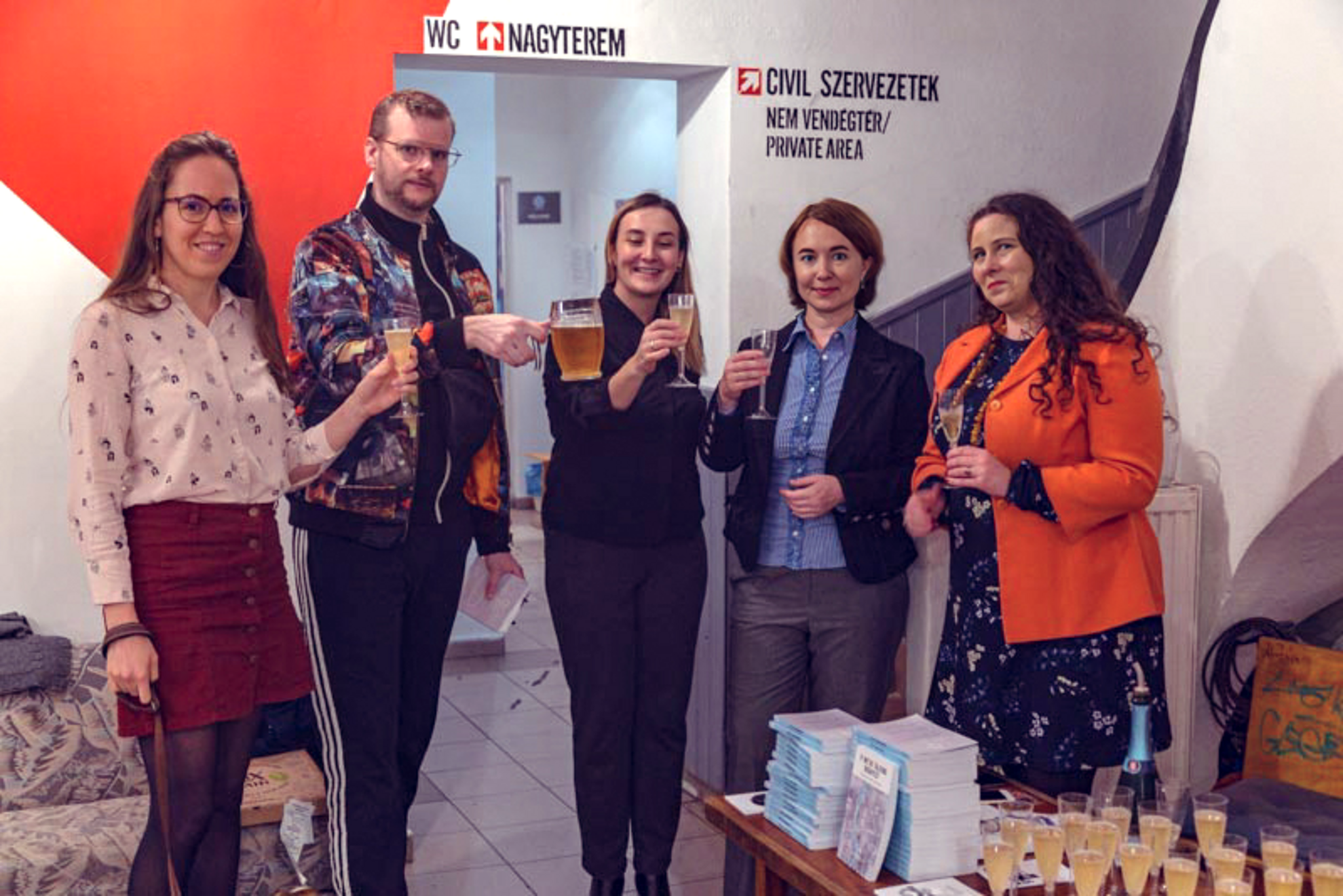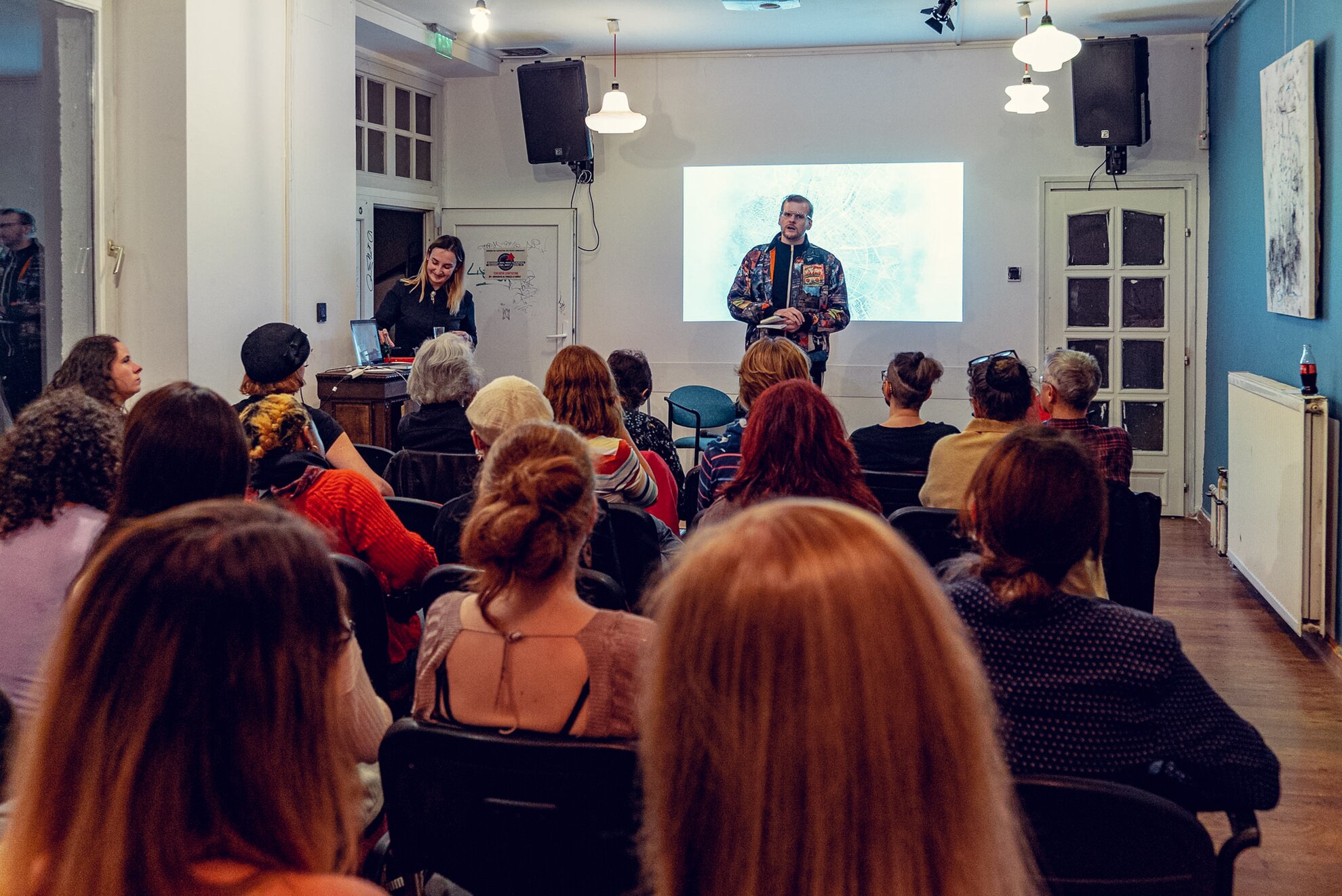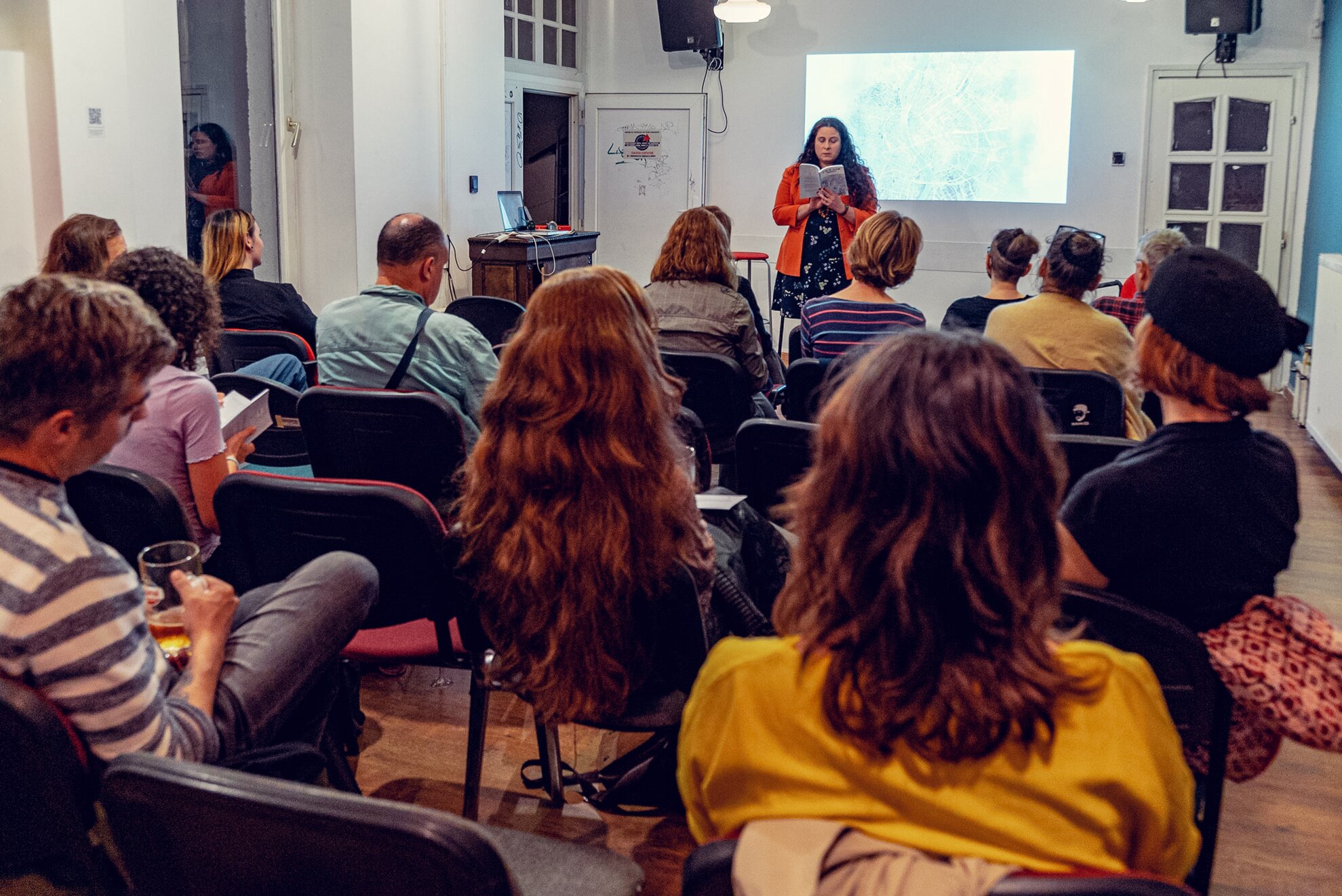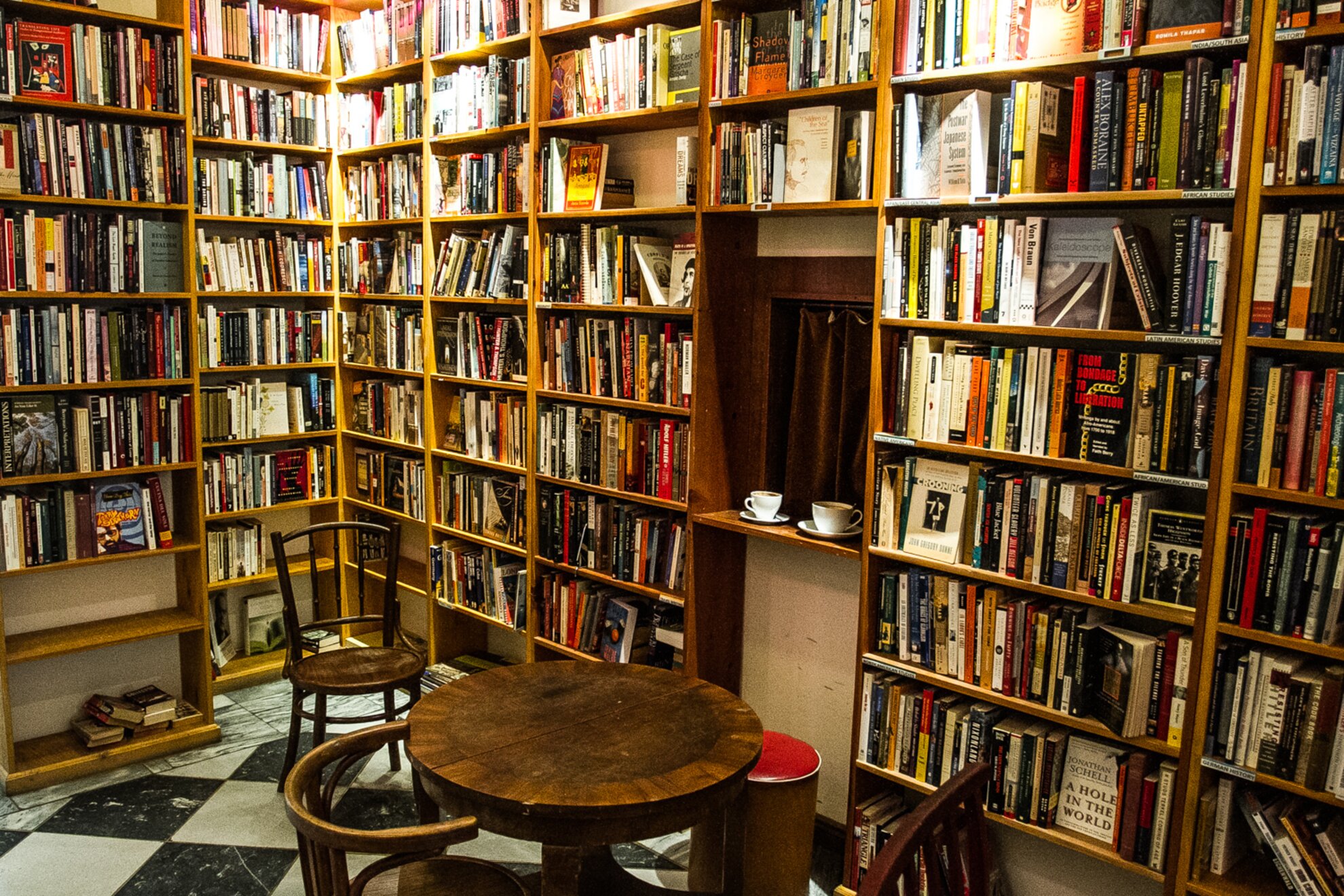Using the city’s bridges, streets and courtyards as its canvas, If We’re Talking Budapest captures a series of brief encounters and existential observations inspired by relationships in and with the Hungarian capital. Published by Panel magazine and now available at major outlets around town, it draws on a pool of local talent whose writings have yet to reach a wider audience.

Friday Night Stories
“We used to get together at Budapest Friday Night Stories,” begins Masha, originally from St Petersburg. “It was a regular open-mic night that gave everyone a platform and helped create a community.”
Established in September 2017, BFNS gave rise to Panel magazine, launched in 2018 and now in its seventh edition. Presenting contemporary writing and art from Central & Eastern Europe, Panel ‘required a then unsubstantiated confidence that our corner of the world was rich with talented writers working in English’, as its first edition declared. ‘It also required a good deal of old-fashioned elbow grease.’
Much of this is provided by Duncan Robertson, formerly of Seattle, Portland, South Korea and Prague. Soon to publish his debut novel, Visegrad, Duncan heads up the editorial team at If We’re Talking Budapest, a new collection of short stories conceived by Panel, polished and put together during lockdown.

“We hemmed and hawed about doing an anthology,” remembers Duncan, “as the pieces we were receiving from first-time authors were way better than we had been expecting. We were aiming for something around 65,000 words. My prime concern is always, ‘will it move an audience?’ When we realised we were punching above our weight in terms of quality, we knew we had something”.
Calling all authors
“Having put out an open call for stories, we didn’t want to publish anything unless it was good,” says Masha, well aware that English is a second language for many in her literary circle.
As they worked through the pile of some 50 stories, lockdown kicked in. Though Budapest Friday Night Stories was put on ice, the Panel team kept their book project rolling with regular virtual meetings.
Meanwhile, interactive artist Mária Gyarmati was hard at work creating a unique concept for the website to indicate the location and visual feel for each story. Clusters of bubbles, as if blown into the air float over Budapest, providing both the cover image for the book and a signature introduction to a series of short video films.
Plotted on an interactive map, these bring the stories to life in YouTube clips. So far, six are posted up with more to follow.
Between the book covers, poignant illustrations by Alexa Fermeglia add subtle
hints to aid the visualisation of each piece. A woman smokes nervously in a doorway,
an older couple relaxes in the sun and ice patches glide beneath Chain Bridge.
The
stories are similarly lyrical, exploring relationships with Budapest as the
backdrop, or vice versa, the City Zoo, Szent István Park and Gellért Hill among
the settings.
Timing is another factor, such as the omnipresence of lockdown in
Jennifer Walker’s expertly pitched Two Meters Apart, in which longing lingers beyond
a deserted Liberty Bridge and shuttered Gellért Hotel.
Long-term residents should
recognise the characters with walk-on parts in other stories, the chess-playing
old locals, the conversations in supermarket aisles.
Translators Anna Bentley, Ildikó Nagy and Jim Tucker have made light work of the pieces adapted from Hungarian, keeping the text flowing in a natural fashion with minimal recourse to footnotes.

Launched amid the bohemian buzz of community bar Auróra, writers, translators and audience coming together for a lively session of readings and presentations, If We’re Talking Budapest should further the conversation beyond a conspiratorial cranny of District VIII.
“We’re hoping this takes off in similar corners of Europe,” says Duncan, whose familiarity with Prague provides a head start in this respect.
Act local, think global
“Our aim is also to promote small, independent bookstores who are struggling right now,” explains Masha. “We also send out copies to outlets in the English-speaking world. If it sells, maybe we will do it on an annual basis, and perhaps look at other cities in the region.”

Here, the mainstay is
Massolit, the homely, higgledy-piggledy treasure trove of mainly
English-language books on Nagy Diófa utca, where many a Friday Night Story has
been told.
Another If We’re Talking reading evening may unfold there, plus the Panel panel
will soon be convening to plan out the next competition for the Ruritania Prize
for short fiction from the region.
Initiated thanks to backing from a Swiss sponsor, this quirky annual accolade best sums up the Panel philosophy. As they themselves say of Ruritania and stories set in similar fantasy lands within Budapest’s orbit: “For those of us who inhabit the real places these fictional countries are said to occupy, the genre is a reminder of the misapprehensions and prejudices of the West, as well as the resonant absurdities of life in the East”.
Cover blurb
If We're Talking Budapest
Price: 5,000 forints/€14
Available from: Írok Boltja, the Ludwig Museum, Massolit, the Oxford Bookshop and online here.



